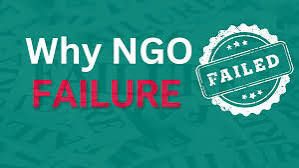The vision was clear. The passion was real. The community needed help. So you registered your NGO, held a launch event, got a few donations—and then, silence. No more funding. Volunteers lost interest. Programs stalled. Sadly, this is the reality for most new nonprofits in Nigeria. Data shows that a significant percentage of newly registered NGOs become inactive or shut down within just two years. The question is: why?
- No Clear Strategic Direction
Most founders are driven by empathy, but emotion isn’t a substitute for structure. After registration, many NGOs lack a well-defined mission, measurable goals, or a plan for sustainability. They chase every opportunity instead of focusing on their niche. Without strategic clarity, they burn out fast.
What to do:
Develop a 3–5-year strategic plan. Define what success looks like and how you’ll measure it. Be focused. Funders invest in clarity, not confusion.
- Weak Governance Structures
Too many NGOs are a one-man show—no functioning board, no accountability, no checks and balances. This not only discourages serious donors but creates leadership fatigue and operational chaos.
What to do:
Build a real board. Not just names on paper, but experienced professionals who can guide, challenge, and support your vision. It gives your NGO credibility and sustainability.
- Poor Financial Transparency
In a space where trust is currency, failing to keep proper records or disclose how funds are spent is a fast route to donor distrust. Many NGOs fail to set up basic accounting systems or conduct regular audits.
What to do:
Even if you’re starting small, adopt simple financial practices. Open a separate bank account. Keep receipts. Publish reports. Transparency invites trust—and funding.
- Chasing Grants Blindly
Too many new NGOs focus solely on foreign grants. They draft proposals for every opportunity without alignment with their core mission. When the grants don’t come, frustration sets in.
What to do:
Diversify your income strategy. Explore local partnerships, social enterprise models, community contributions, and fee-for-service opportunities. Financial sustainability should not depend on external grants alone.
- Ignoring Legal and Regulatory Compliance
After CAC registration, many NGOs do nothing else. No SCUML registration. No annual returns. No tax clearance. This makes them ineligible for grants, partnerships, and even bank operations.
What to do:
Understand your obligations. Stay compliant. Work with a legal or compliance advisor to meet regulatory demands. Compliance is not optional—it’s survival.
Running an NGO in Nigeria is more than good intentions. It requires strategy, structure, systems, and sustainability thinking. Passion may start your nonprofit, but professionalism keeps it alive. If you want to be among the few that thrive beyond two years, treat your NGO like an institution—not a personal project.
Because the cause is too important to fail.

